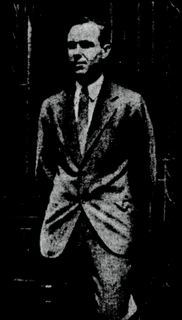A Quote by Michel de Montaigne
Every other knowledge is harmful to him who does not have knowledge of goodness.
Related Quotes
On the basis of the eternal will of God we have to think of EVERY HUMAN BEING, even the oddest, most villainous or miserable, as one to whom Jesus Christ is Brother and God is Father; and we have to deal with him on this assumption. If the other person knows that already, then we have to strengthen him in the knowledge. If he does no know it yet or no longer knows it, our business is to transmit this knowledge to him.
History is valuable, to begin with, because it is true; and this, though not the whole of its value, is the foundation and condition of all the rest. That all knowledge, as such, is in some degree good, would appear to be at least probable; and the knowledge of every historical fact possesses this element of goodness, even if it posses no other.
While the dogmatist is harmful, the sceptic is useless ...; one is certain of knowing, the other of not knowing. What philosophy should dissipate is certainty, whether of knowledge or of ignorance. Knowledge is not so precise a concept as is commonly thought. Instead of saying 'I know this', we ought to say 'I more or less know something more or less like this'. ... Knowledge in practical affairs has not the certainty or the precision of arithmetic.
In the popular arena, one can tell ... that the average man ... imagines that an industrious acquisition of particulars will render him a man of knowledge. With what pathetic trust does he recite his facts! He has been told that knowledge is power, and knowledge consists of a great many small things.
As was the case for Nobel's own invention of dynamite, the uses that are made of increased knowledge can serve both beneficial and potentially harmful ends. Increased knowledge clearly implies increased responsibility. We reject the notion advocated in some quarters that man should stop eating from the tree of knowledge, as if that were humanly possible.
For the Humanist, . . . head and heart . . . must function together. . . . The constitution of the Phillips Exeter Academy reads: 'Though goodness without knowledge . . . is weak and feeble, yet knowledge without goodness is dangerous. . . . Both united form the noblest character and lay the surest foundation of usefulness to mankind.'
Each is liable to panic, which is exactly, the terror of ignorance surrendered to the imagination. Knowledge is the encourager, knowledge that takes fear out of the heart, knowledge and use, which is knowledge in practice. They can conquer who believe they can. It is he who has done the deed once who does not shrink from attempting again.
I feel that all knowledge should be in the free-trade zone. Your knowledge, my knowledge, everybody's knowledge should be made use of. I think people who refuse to use other people's knowledge are making a big mistake. Those who refuse to share their knowledge with other people are making a great mistake, because we need it all. I don't have any problem about ideas I got from other people. If I find them useful, I'll just ease them right in and make them my own.






































